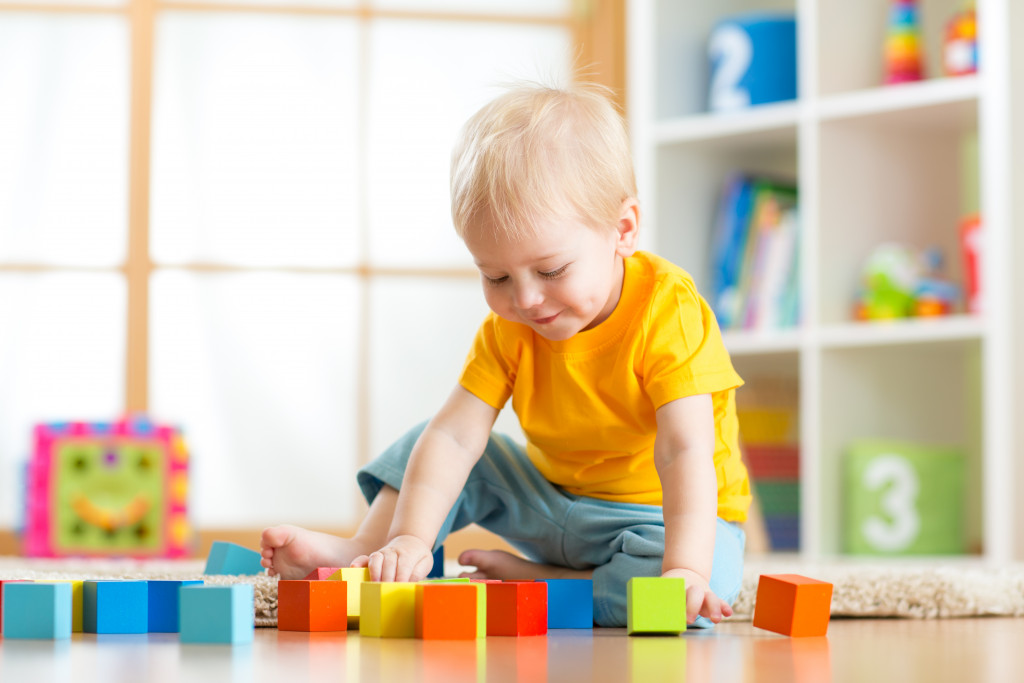Cognitive development can be defined as the physical, social, emotional, and intellectual changes during childhood and adolescence. It’s an exciting time in your child’s life, but it can also be challenging if you don’t know how to make the most of their brainpower.
Understanding cognitive development helps to know what cognitive abilities mean. According to Psychology Today, cognition refers to a set of mental processes that includes thinking, knowing, remembering, and problem-solving. Your child will develop these skills by interacting with his environment. Cognitive development is not simply about learning facts; it’s about developing critical thinking skills and creating connections between different areas of your child’s brain. Here are some fun ways you can encourage your child’s cognitive development
Talk More
Use sentence enhancers such as please, thank you, and I love you. Model proper vocabulary—explain what a word means when your child asks. Ask questions. When your child points at an airplane flying overhead, ask him if he knows how an airplane flies or what one is used for. Point out letters on cereal boxes while reading breakfast menus with your kids.
Asking thoughtful follow-up questions will encourage deeper thinking from your child. The process of explaining something often leads children to explore their thoughts on a topic. These conversations can also help build logic and reasoning skills. It can be challenging during times of emotional turmoil but also helps promote communication between parent and child without pressure.
Offer Them Choices
Most kids want to be active participants in their own lives. Rather than dictating, “Do your homework,” say, “Do you want to do your homework first or play with your Legos?”
By giving kids choices and providing ample opportunities for social interaction, they’ll learn important cognitive skills and boost self-esteem. The more involved your child feels in life, which is key to brain development, the less likely they are to feel depressed. Children who feel valued can engage socially and are less likely to withdraw from challenging situations later on.
Play Outside
There’s an instinctive desire for children to play outside, and you must encourage that tendency. As adults, we may not realize just how much time we spend indoors sitting at a desk, but children can be affected by spending too much time cooped up inside. Studies have shown that kids who get fresher air experience more cognitive development than those who don’t—and learning how to encourage cognitive development is one of your most important jobs as a parent.
Change Up Routines
Kids thrive on routine, but it’s important to break that routine up now and then. Give your kids opportunities to make decisions and solve problems, giving them some control over their day-to-day lives. By empowering children with some decision-making power, you can help them make cognitive connections at a young age. For example, instead of asking your kids which shirt they want to wear, ask them if they want to wear blue or red today. They might end up picking something new—but more importantly, they will be learning about color recognition and being forced to choose for themselves; all of these experiences lead directly to increased brain development!

Read Together
Reading is an excellent way for parents and children to connect, but it’s also a perfect tool for helping kids learn and grow. There are numerous benefits of reading with your child from a young age, not least of which is that reading time provides quality bonding time between parent and child. But even more importantly, reading can be instrumental in helping your child develop new skills. Studies have shown that reading together is one of the most effective ways to build vocabulary.
Consider After-school Programs
Most institutions have after-school care programs either run by teachers or students. These programs provide an environment where kids can get help with homework, engage in other activities, and even promote their cognitive abilities. There is also significant research on how children who attend after-school programs tend to do better on standardized tests.
If your child attends school at a public institution, there is probably a program for them. Ask your kid’s teacher about it if you’re unsure what kind of support they offer. Or you could always reach out to after-school care facilities as well.
Re-create Everyday Objects Into Learning Opportunities
Just as a child can learn by exploring and interacting with their environment, they can also learn by re-creating everyday objects into learning opportunities. By taking an object like a stroller or a teddy bear and talking about it, and encouraging your child to talk about it, you are building their vocabulary and giving them practice interacting with people.
By keeping your child engaged in mentally stimulating activities and providing them with an environment that fosters healthy cognitive development, you’ll be able to overcome many common parenting challenges. Try incorporating a few of these techniques into your daily routine, and you’ll be well on your way to boosting cognitive development.









